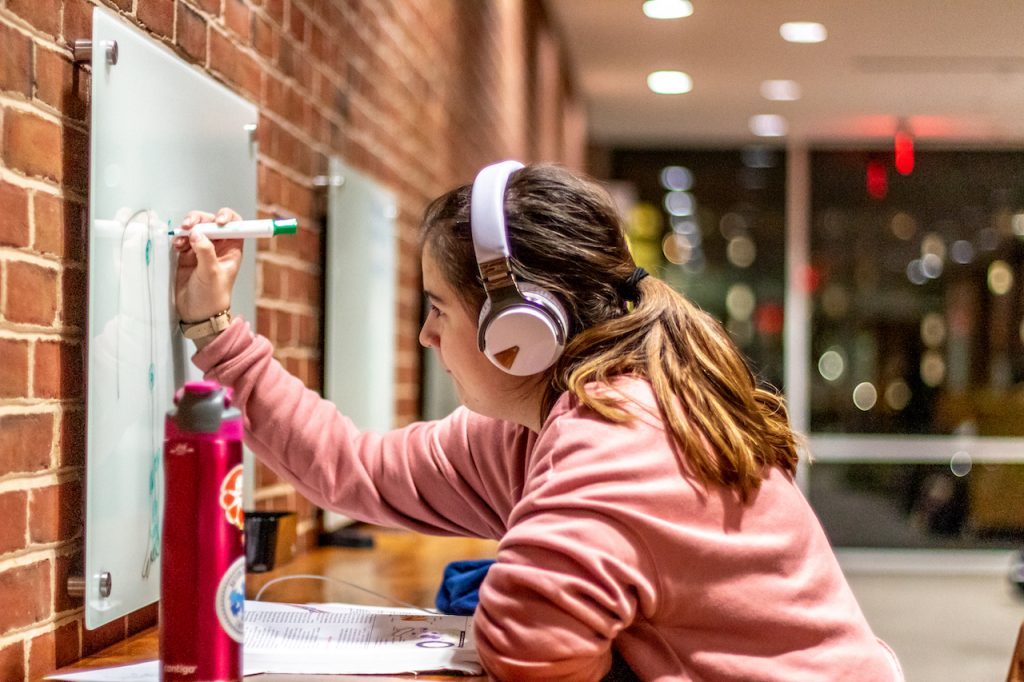Pulling all-nighters can begin as a harmless solution for procrastinating students who need to complete last-minute cramming – but it can quickly turn into a four-year habit.
Naturally, students supplement a night’s sleep with extra coffee, 5-Hour Energy and Red Bull. They even fool themselves into believing there will be time later within their busy schedule for a power nap.
But this is simply not the case. Sleep is the first thing to go when high marks on exams need to be met and essays need to be written – not to mention going to that one friend’s last-minute birthday party, a lunch date with a RA or the hall’s movie night. With so much to do, it’s easy to see why students often find themselves exhausted.
Worth the risk?
Students are among the most sleep-deprived people in the United States. According to Medical News Today, only 30% of students get sufficient sleep (which should be close to eight or nine hours a night). According to the same report, 20% of students pull all-nighters at least once a month and 35% regularly stay up past 3 a.m. at least once a week.
Those familiar with pulling all-nighters can attest to the side effects: grogginess, drooping eyelids, irritableness and forgetfulness. What begins as a one-time event rapidly progresses into a vicious cycle that confuses the brain’s internal clock. Sleep is vital because it allows the brain time to replenish for the next day.
Especially considering that most all-nighters consist of late-night cramming, the brain will already have difficulty retaining a large amount of information at once. Forcing an entire subject’s worth of material for hours into the night will yield poor results.
The effectiveness of the brain’s overall function, which comprises reasoning skills and attention span, is entirely dependent on sleep. Expecting the brain to gain a thorough understanding of a complicated subject when one or multiple components of the cognitive process is lagging is close to impossible. A study at Harvard Medical School indicated that while students may be tempted to pull an all-nighter to experience the burst of adrenaline that will hopefully propel them to complete tasks, it is a feeling of false confidence that masks the potential consequences.
A lack of sleep can result in immediate, noticeable effects, both through a student’s grades and physical well-being, but the accumulation of fatigue out of an ongoing habit of all-nighters will likely manifest long-term effects.
“The stressed-out, low-endurance feeling of constant fatigue takes a toll on your body,” Harvard Medical School’s study said. Stress plays a dangerously important role in a college student’s life that has a strong influence on sleep deprivation.
A study reported on Medical News Today showed that stress concerning school and life keeps 68% of students restless and awake at night.
A Sleepless Life
McKenzie Myers, a freshman and self-proclaimed “all-nighter,” spoke of her experience with this continuous lifestyle.
“In college, trying to juggle schoolwork, extracurricular activities, as well as a social life seems to inevitably lead to pulling all-nighters to accomplish everything that needs to be done,” Myers said. “Personally, I would rather sacrifice sleep to study and feel prepared for an exam than get sufficient sleep and risk harming my grade.”
The first time Myers pulled an all-nighter, she was studying to achieve her desired grade. But now staying up until the early hours of the morning has become a habit with benefits and drawbacks.
“Now, I find it extremely difficult to fall asleep at a normal time,” Myers said. “Even going to classes and work throughout the school day is a challenge.”
She explained that although it would make sense to go to sleep as early as possible after a long, busy day, she tends to stay up all night to make up for lost time.
“I’m at the point where there isn’t an alternative to all-nighters,” Myers said. “It’s definitely adapted into a kind of lifestyle for me.”
On the other hand, those who elect not to experience constant all-nighters vocalize the importance of dedicating specific time for sleep. Freshman Julia Barber even turns off her phone before bed to protect her sleep.
“Sleep is a necessary thing for me to act as a functional human being,” Barber said. “Making sure I go to sleep around the same time every night is really important.”
Alley is a feature writer.
